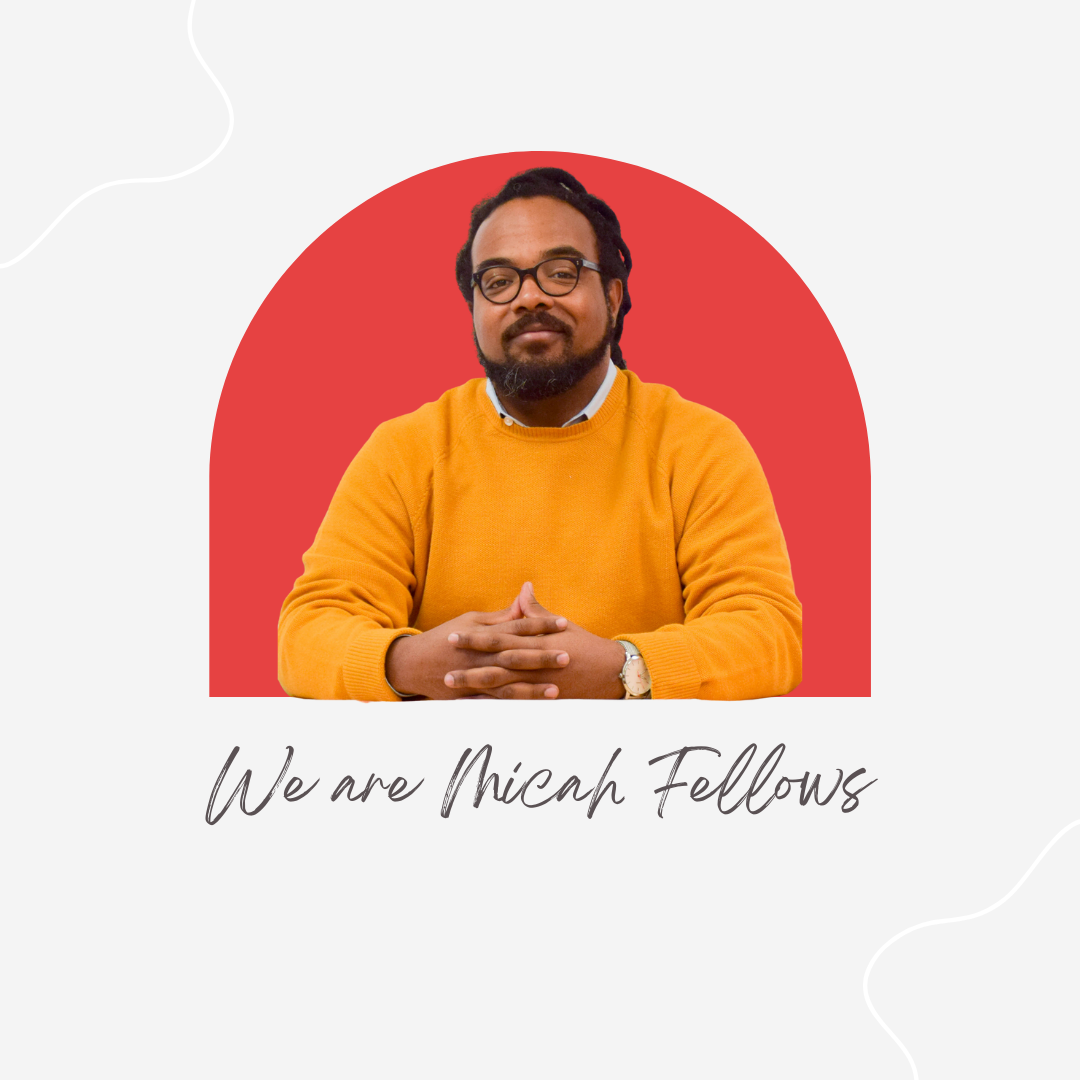
FOUNDATION PROGRAMS
Follow the Faithlines: Catching Up with the First Micah Fellows Cohort

INTERVIEW WITH REV. RYAN D. DAVIS
May 3, 2022
As the first cohort of the Micah Fellows Program comes to an end this year, we caught up with program coordinator Rev. Ryan D. Davis to gather inspiration behind the movement, learn about upcoming projects from cohort members and get details about the next cohort application cycle for 2022.

What is a Micah Fellow and what is their role in their community?
RD: A Micah Fellow, true to the scripture from which it is grounded, understands what it means to DO Justice, to PRACTICE Mercy and to WALK Humbly. Micah Fellows know that those things in reality should be foundational to how we approach policy, that, as the prophets say, it is what is REQUIRED of us.
Micah Fellows are, in their disparate communities, facilitators, advocates, breach repairers, connectors — in short, people who do something when they get up off of praying knees!
Who were you looking to recruit for the Micah Fellows program?
RD: We were looking for clergy and laypersons, leaders in their individual faith communities and their communities at large. We looked for geographical diversity because we wanted to (and have I would say) facilitate a statewide network of concern and work with/for ALICE households in Arkansas.
What were some of the things / topics discussed in this cohort cycle?
RD: The topics discussed with this first cohort cover a wide range and all connect to ALICE and the struggles of households across our state. We began exploring the significant costs of poverty, and the historical roots of faith communities bringing solutions to bear — what has and has not worked in history and practice.
We talked about legal parameters in the application of our work. We talked in visionary terms about how we can actually and realistically LIVE the ideals of the Beloved Community right here and now.
Biggest challenges getting the cohort started and maintaining throughout the first year of operations?
RD: Our greatest challenge has been breaching the need for connectivity. The fellowship is about 90% virtual. As a statewide cohort, we knew at the outset that a mostly virtual fellowship experience solves for access.
The fellows expressed a need from the beginning for a more meaningful connection to each other, to forge an ontologically real statewide network/partnership. We decided mid-stream to offer some opportunities to gather formally outside of the Spring retreat.
What do you feel have been your biggest accomplishments with the program so far?
RD: This fellowship’s greatest accomplishment, in its first year with this first cohort, is in the fact that so many of the fellows have been galvanized to evaluate their work in their communities within the context of ALICE.
What programs or projects are in place / on the horizon for individual Micah Fellows?
RD: Fortunately, so many of the fellows have already decided what their post-fellowship projects will be. The projects range from voter engagement and mobilization to policy advocacy for children in the foster care system.
We are grateful to the Methodist Foundation for Arkansas for offering mini-grants to our fellows to implement projects in their communities. I’ll offer some assistance to grantees throughout their implementation phase from the end of this month (May) through August.
What are your goals for the program? What does the future look like?
RD: Our goals include taking a serious retrospective look, along with this first cohort of fellows, at how this year went. We want to know how we can be better moving forward. We want to know where we might’ve missed the mark. We have the great fortune of using this year as a template or even setting it aside altogether. We’re grateful to our current fellows for helping us inform the years ahead.
Will there be a 2nd cohort? If so, how does one apply and when will the application process begin?
RD: There will be a second cohort! We will decide in the coming weeks how we will/if we will change the application process materially. We will lean on the current fellows (who’ve graciously offered) to help with recruitment.
We will begin the application process at the end of June. As accessibility is a necessary theme for this year, we want to be sure to have a few modes by which applications are remitted.
How has this experience been for you as the program coordinator?
RD: This experience has been encouraging. I almost feel selfish saying that, but I needed this experience, needed to know that there are people across this state who though “hard-pressed on every side” are not crushed; folks who are “perplexed, but not in despair.”
The practical application of Micah’s prophetic requirement, undergirded by ALICE’s policy urgency made this fellowship REAL. It begged the question, ” what does your faith look like IN ACTION?”
